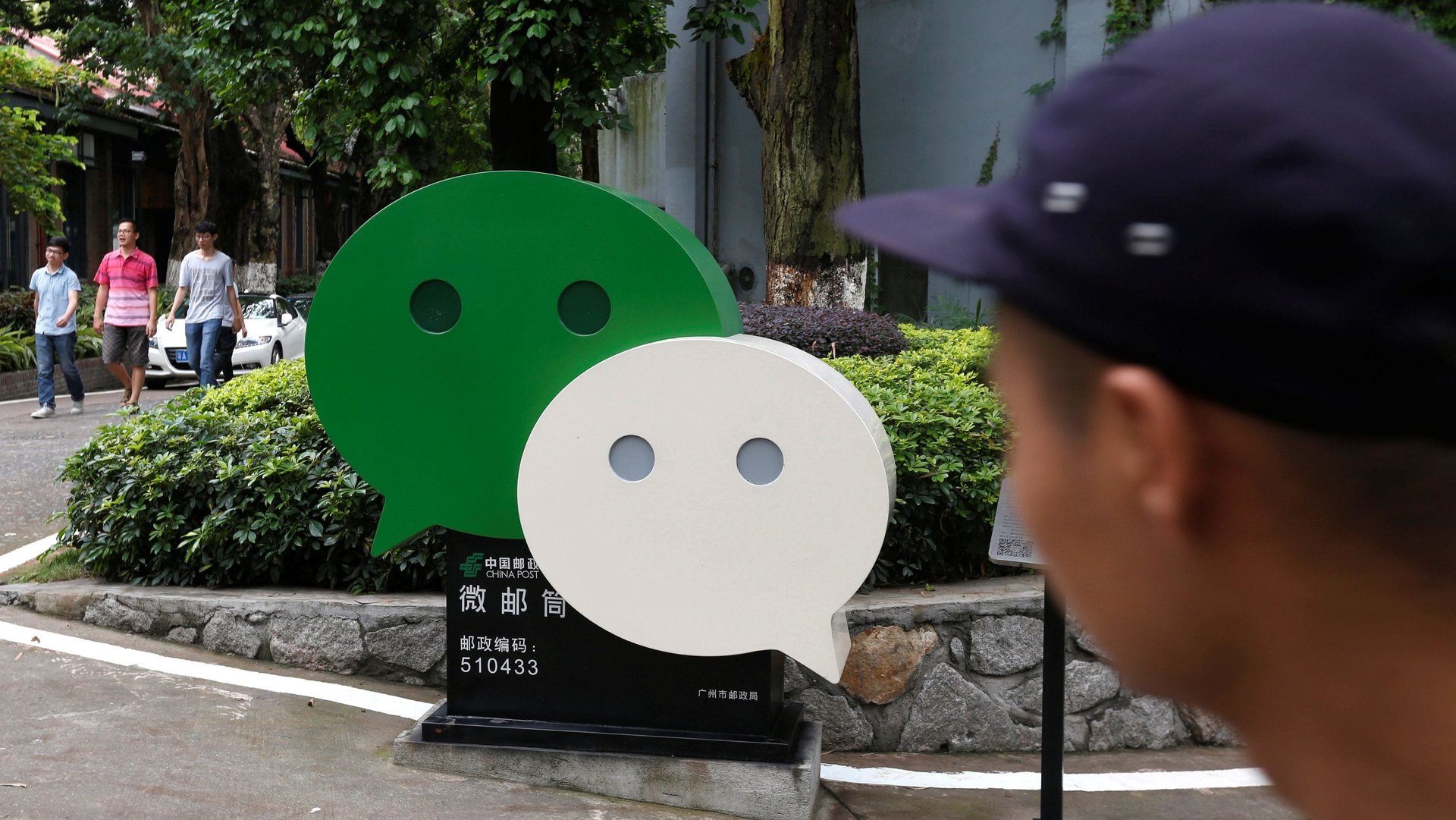The “SoftBank of China” has invested in more unicorns than SoftBank
Tencent, the Chinese tech giant that is best known for its messaging app WeChat, has been quietly, yet aggressively, investing in global startups for the past five years. Those efforts have put it ahead, by one measure, of one of the top deal makers in the tech space.


Tencent, the Chinese tech giant that is best known for its messaging app WeChat, has been quietly, yet aggressively, investing in global startups for the past five years. Those efforts have put it ahead, by one measure, of one of the top deal makers in the tech space.
Tencent has invested in 46 global unicorns, compared with 42 from Japan’s SoftBank Group, according to the inaugural Hurun Global Unicorn List 2019, which found that China, for the first time, surpassed the US in terms of number of unicorns. Tencent and SoftBank made it to Hurun’s list of the top 10 investors in unicorns, ranking second and third, respectively, after US-based Sequoia Capital, which has invested in 92 unicorns.
The oldest unicorns listed by Hurun, a Shanghai-based publishing group, were founded in 2000, but the majority were founded in 2010 and later. The group, which also releases annual lists of Chinese billionaires, did not clarify queries about methodology for the list released Monday (Oct. 21).
It may not be an apple-to-apples comparison, given that some of Tencent’s investments predate SoftBank’s $97 billion Vision Fund, which upended the global tech industry when it launched in 2017, and began splashing money on firms with no clear path to profitability. SoftBank’s most prominent investments include Uber and others in ride-hailing, Slack, WeWork and India-based e-commerce firm Flipkart.
Tencent meanwhile has backed startups that included $55 billion Chinese ride-hailing giant Didi Chuxing and WeBank, a Chinese digital banking provider valued at $20 billion, according to Hurun, and delivery services in both China and India.
Overall, firms from China and the US dominate the list of top unicorn investors. Five are from the US, including Tiger Fund, IDG, Goldman Sachs and private equity firm Andreessen Horowitz, while three are from China, including Alibaba and GGV.
In terms of sheer volume of investment, however, SoftBank may well be ahead. Compared with around $80 billion deployed from the first Vision Fund by SoftBank, Tencent is estimated to have spent upwards of $30 billion between 2015 to 2017, according to Bhavtosh Vajpayee, a research analyst at Sanford Bernstein who in 2017 dubbed Tencent “the SoftBank of China” (paywall) in an interview with the Wall Street Journal. It is difficult to put an exact number on Tencent’s total investment amount, as usually only the total size of the round it participates in is revealed.
Tencent often invests in companies that can seem tangential to its core businesses of gaming and social media. The Chinese tech giant has put money into ride-hailing, retail, online media, and electric-car makers both inside and outside China, including a 5% stake in Tesla and a 7.5% stake in Spotify. This year, it has invested in at least 11 companies, including UK-based AI company Prowler and Chinese crowdfunding platform Shuidi, according to Chinese media PE Daily.
After years of aggressive investment, Tencent is reaping the rewards. The company generated 27% of its net profit (pdf, page 13) in the second quarter from companies it has invested, compared with 22% (pdf, page 13) a year ago. In comparison, SoftBank is under pressure to deliver to its investors amid sluggish the performance of Uber and Slack, as well as the failed IPO plan and slashed valuation of WeWork, which it struck a deal to take control of today.
The firm’s flamboyant CEO Masayoshi Son is reported to be considering refocusing the second Vision Fund, which has a target of raising $108 billion, on investing in AI and in companies that can make money quickly, according to CNBC.